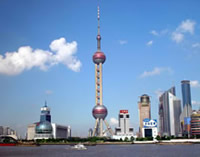|
|


ADVERTISEMENT
Buy Your own advertising
spaces!
.
Download Adobe Acrobat Reader to open [PDF] files.
Recent Visitors
Indifferent US public results in American Expo debacle
2010. 17 March
 by Zachary Franklin
by Zachary Franklin
(opinion.globaltimes.cn) Since ground broke on the US pavilion in July 2009, Shanghai Expo 2010, Inc., the American group in charge of the pavilion, has been plagued with issues surrounding fundraising. There have also been repeated refusals by US State Department officials to disclose information regarding the pavilion and questions about the fairness in the initial bidding process.
All this came out in a March 8, 2010 article in Foreign Policy by journalist Adam Minter titled "A Sorry Spectacle," documenting the shortcomings of the Shanghai Expo 2010, Inc. group and the seemingly embarrassment its caused the US in preparation for the 2010 Shanghai World Expo. "A Sorry Spectacle" is the first full report of what's been happening in the construction of the pavilion.
But Minter is one of the few that's been following the US pavilion. US media is ho-hum about the Shanghai Expo, and interest by the US public doesn't seem like it can get any lower.
So when it is reported there are questions surrounding how the firm was selected for the pavilion, how the budget money is currently being spent, and how if Secretary of State Hillary Clinton hadn't stepped in and made the effort, there wouldn't even be a US pavilion, Americans shrug their shoulders.
For the past two decades, the US public has been indifferent about World Expos. The approach that Shanghai Expo 2010, Inc. took when it was given the reins, a last minute, half-hearted attempt at slapping something together so the US wouldn't hurt China's feelings after the US looked like it wasn't even going to meet any of the deadlines, reflects this.
Take the building's design. According to the architectural websites where people have commented on the structure, the design plan has been repeatedly bashed as an architectural failure.
The lethargy that has surrounded the completion of the US pavilion is all the more embarrassing given the Chinese enthusiasm for it.
A January 2009 joint study conducted by both Ogilvy Public Relations Worldwide and Millward Brown ACSR stated that of the more than 14,000, nearly half who said they planned to attend the Expo also wanted to see the US pavilion, making it the most anticipated foreign pavilion of the event.
Chinese dynamism with regard to the US pavilion stands in stark contrast to America's own attitude toward the whole spectacle.
Then again, look at what the Shanghai World Expo is promoting: "Grand events for economic, scientific, technological and cultural exchanges. Serving as an important platform for displaying historical experience, exchanging innovative ideas, demonstrating esprit de corps and looking to the future."
The Expo's mission statement could just as easily be a tourism advertisement for New York City or the business plan of Wikipedia. The US has already come to define most of what the Expo aims to promote.
Why is the US in Shanghai? What are the advantages to the US having a pavilion at the 2010 Expo? What does the US get other than necessary diplomacy, given the recent spats between China and the US over arms sales to Taiwan, allegations of cyber hacks by China on US companies, and tire tariffs?
The truth is most of the US' major cities are already major hubs for international exchanges, economic, diplomatic or otherwise.
They've been that way for the better part of the last several decades. It's no wonder most Americans have no desire to share the same fanfare and excitement over the Shanghai Expo. They've had years to enjoy what Shanghai gets for five months.
And if Americans don't take the event seriously, why should the US representatives look anymore favorably on the pavilion?
It's this attitude toward the Expo, a palpable apathy demonstrated by the American public, that has allowed its representatives in Shanghai to lose sight of the goal
One need not look toward the US shores to see the loss of adoration the public has for grand international gatherings. The best example of that now resides with the US pavilion in Shanghai.
The author is a master's student majoring in economics at Fudan University in Shanghai. zacharyfranklin@gmail.com
Source: opinion.globaltimes.cn

